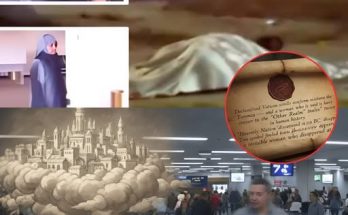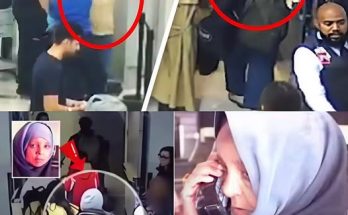Pope Francis Dies at 88: A Global Spiritual Leader’s Final Journey Comes to an End
The world awoke to heartbreaking news this morning: Pope Francis, the beloved head of the Catholic Church, has passed away at the age of 88. The Vatican confirmed the solemn news on Easter Monday, just one day after he made his final public appearance during one of the Church’s holiest celebrations.
His death follows a prolonged illness that advanced into pneumonia in both lungs. Despite his condition, Pope Francis made a stirring appearance on Easter Sunday in St. Peter’s Square, blessing the faithful from the balcony of the basilica in what would become his last act of public ministry.
A Historic Farewell

Following his passing, the Vatican announced that his body will lie in state at St. Peter’s Basilica for an official mourning period. Unlike many of his predecessors, Pope Francis chose to be buried at the Basilica of Santa Maria Maggiore in the Esquilino district of Rome—symbolic of his pastoral humility.
The College of Cardinals is expected to gather for a Conclave in the Sistine Chapel in at least 15 days to select the next pope.
His Final Easter
On Easter Sunday, an estimated 35,000 people gathered to see the Pope one last time. Although frail and seated in a wheelchair, Francis was visibly moved by the crowd’s chants of “Viva il Papa!” (“Long live the Pope!”). The Easter Mass was led by Cardinal Angelo Comastri, but Pope Francis offered the apostolic blessing and delivered heartfelt Easter greetings.
His Easter message, read aloud by an aide, touched on major global issues. He denounced the violence in Gaza, warned against the rise of antisemitism, and called for peace rooted in religious freedom and mutual respect.
“There can be no peace without freedom of religion, freedom of thought, freedom of expression, and respect for the views of others,” he declared.
A Lifetime of Service
Born Jorge Mario Bergoglio in Buenos Aires on December 17, 1936, Francis was the son of Italian immigrants and one of five children. He once told a young woman who turned down his marriage proposal, “If I can’t marry you, I will become a priest.” And he did—joining the Jesuit order and eventually becoming Archbishop of Buenos Aires in 1998.
By 2013, after the historic resignation of Pope Benedict XVI, Bergoglio was elected the 266th pope—becoming the first Jesuit, the first Latin American, and the first non-European pope in over 1,300 years.
Known for his deep humility, Francis quickly earned the nickname “The Slum Bishop” for his advocacy in Buenos Aires’s poorest neighborhoods. That same dedication to the marginalized defined his papacy. He championed the rights of migrants, the environment, and LGBTQ individuals. He also faced criticism, particularly from conservatives, for perceived ambiguity on Church doctrine.
The Pope and Politics
Pope Francis never shied away from engaging with the world’s political realities. He challenged the Trump administration’s immigration policies, which created tension between him and U.S. officials, including Vice President JD Vance. Despite their differences, the two had a short meeting on Easter Sunday in Rome.
Francis’s political outspokenness extended globally. He was vocal on climate change, economic injustice, and even condemned what he saw as the failings of Western democracies.
Health Battles and Resilience
Pope Francis’s health had long been a concern. At 21, he lost part of a lung to pleurisy. In recent years, he underwent multiple hospitalizations, including a hernia surgery in 2023 and treatment for bronchitis that later developed into pneumonia.
Despite these challenges, he continued to travel, even visiting southeast Asia and Oceania in 2024—stopping in Indonesia, Papua New Guinea, and Timor-Leste. His visit to Singapore became his final major international trip.
A Legacy of Courage and Compassion
Throughout his papacy, Pope Francis was deeply involved in addressing the Church’s internal crises, especially the global clergy abuse scandal. He called for justice, accountability, and healing—meeting with survivors, condemning abusers, and reforming Vatican laws.
“Evil must not be hidden. It must be exposed,” he told 30,000 people in Brussels in one of his final major public addresses.
His papacy was not without controversy. Critics accused him of failing to speak out against Argentina’s 1970s military dictatorship, and some questioned his handling of doctrinal issues. Still, his supporters highlight his behind-the-scenes efforts to protect others and his unwavering dedication to transparency.
The Final Chapter
As Francis’s strength faded, he spent more time in a wheelchair and relied increasingly on aides. Even so, he never lost his desire to serve. He continued meeting with world leaders, welcoming guests, and advocating for the poor and displaced.
His final words, final blessing, and final ride through St. Peter’s Square on Easter Sunday encapsulated the very essence of his papacy: humility, compassion, and unwavering hope.
The Vatican confirmed that Pope Francis died peacefully, succumbing to stroke and irreversible heart failure, according to Vatican physician Dr. Andrea Arcangeli.
Now, the bells of cathedrals around the world toll in mourning. The Church, the faithful, and even those outside its walls reflect on the legacy of a man who reshaped the modern papacy—and the global conversation on faith, justice, and love.
Please SHARE this article with friends and family to honor the memory and legacy of Pope Francis. Let his final message continue to inspire us all.



